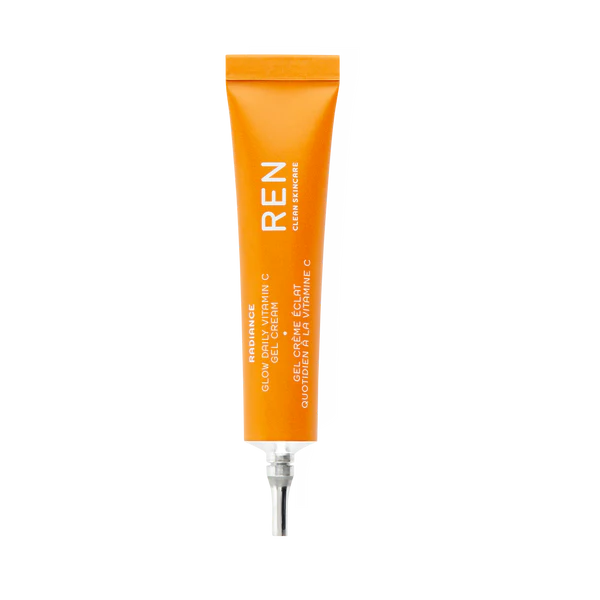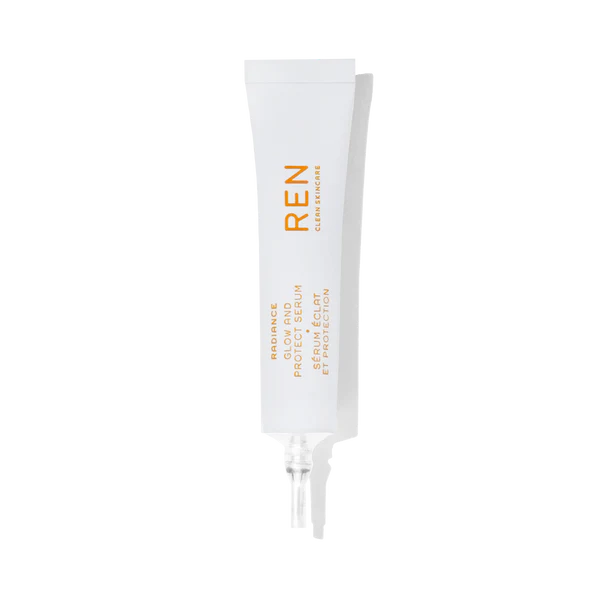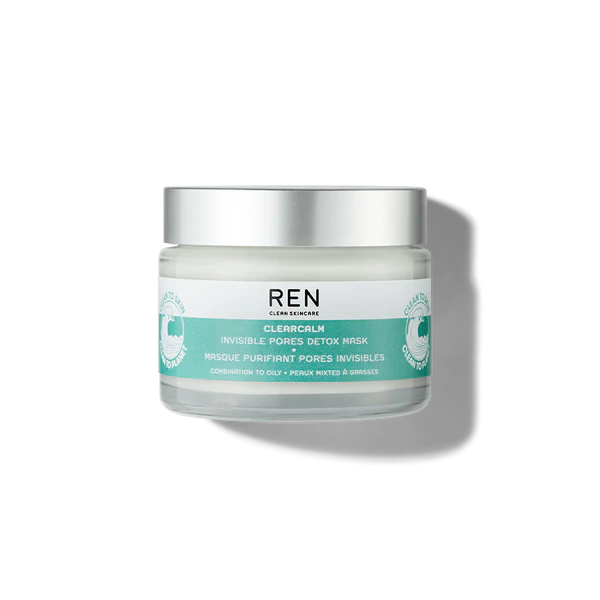How to prevent dry skin in the winter.

Winter is... here, and if we couldn’t tell from the temperatures outside, our skin sure can. You know the signs. Dry skin can feel tight and uncomfortable, can look flaky and rough, and can be frustrating to deal with. But knowing how to prevent dry skin in winter weather is the first step to creating a winter skin care routine that will save you from skin irritation and the dreaded winter itch. Whether you want to reduce your dry skin or prevent dry skin from occurring in the first place, we can help. We have put together this definitive guide to teach you how to prevent dry skin, but it will also help reduce stubborn dry skin you may already be dealing with so you don’t have to suffer all winter long.
Why You Are Experiencing Dry Skin
The first step to preventing winter dry skin is getting to the root of what’s causing it in the first place. While there are a number of things that can make dry skin worse from the foods you eat to the fabrics you wear, dry skin is typically the result of hereditary or environmental factors or a poor skin care routine.
Your Environment
You are probably most familiar with dry skin as a result of the change in weather. When winter hits, temperatures outside drop and temperatures inside rise. This combination of cold and dry air can disrupt the skin’s barrier and steal all of its moisture.
Your Routine
Some of those powerful products that serve you well during the summer months may be causing the issues now. Stringent cleansers, harsh exfoliants, and retinoids can all disrupt the skin’s barrier and leave it prone to moisture loss. While cleansing, exfoliation, and using retinoids are all important steps in any skincare routine, they need to be altered for winter skin, or sensitive skin. It is also important to know the best ingredients for dry skin in order to create a special skin care routine for dry skin with the right products. Switching to a gentle, hydrating cleanser, exfoliating and using retinoids fewer times per week, and never combining the latter two will help your skin respond better and be less dry this time of year.
Your Genetics
If neither your environment nor your routine seem to be the culprit, your genes could be. Dry skin, like many other ailments, is hereditary. If your skin is dry most of the time, it’s all the more reason to learn how to reduce dry skin and master a routine that will keep it hydrated and nourished.
How to Prevent and Reduce Dry Skin
Whether your skin is dry due to the environment you’re in, your routine, or your genes, you can address it much the same way. Follow these steps to reduce dryness and learn how to prevent dry skin in the first place.
1. Moisturize
Dry skin is simply a sign that the skin lacks water. It may not be getting enough water, or it may be losing too much of what it’s getting. We’ll worry about the latter problem later on, but first, it’s important to ensure you’re supplying your skin with enough water. The best defense against dry skin in the winter, or anytime, is making sure your skin is properly moisturized. Enlist the help of quality body care products and a rich moisturiser to keep skin feeling nourished.
Evercalm™ Global Protection Day Cream utilizes Global Protection Complex, a blend of powerful antioxidants and environmental-damage fighters, together with soothing and nourishing Blackcurrant Seed and Camelia oils. It leaves the skin hydrated, replenished, and better protected against moisture loss, pollution, and external factors.
2. Exfoliate
It may seem counterintuitive because many exfoliants dry out the skin, but exfoliation is an essential step to prevent and reduce dry skin. Exfoliation helps rid your skin of dead skin cells that can easily clog the surface of your skin, making it difficult for any products to penetrate beneath the surface. Plus, it promotes cell turnover, which affects the overall health of your skin.
A few times a week, or less for sensitive skin, apply Glycol Lactic Radiance Renewal Mask, which features both Glycolic acid and Lactic acid to gently exfoliate the skin and help remove dead skin cells without further dehydrating the skin to reveal a more radiant complexion.
Remember, too much of a good thing can be bad for your skin, and that is especially true of exfoliation in the winter. Pay attention to how your skin responds; if your skin becomes irritated, exfoliate less and if your hydrating products don’t seem to be working, exfoliate a bit more.
3. Lock In Moisture
As we mentioned above, water loss may be at the root of your dry skin. To avoid losing moisture throughout the night, it’s important to use a product that will help protect your skin’s natural barrier and lock in the benefits of the face serums, oils, and moisturizers you applied before. Insert our Evercalm™ Overnight Recovery Balm. This rich-yet-lightweight night balm nourishes and moisturizes skin with natural-origin lipids from Olive, Almond, Borage and Linseed. Acting like a protective blanket, it helps to minimize water loss while the skin’s nightly restoration process takes place.
4. Use Sunscreen
Just because the sun may be less strong for folks in the Northern Hemisphere during the winter months doesn’t mean you don’t need sunscreen. Sunscreen is still your best defense against sun spots, wrinkles, and yes, even dryness. Sun-parched skin will be rough and dry, so don’t forget to apply… and reapply even on cold, cloudy days.
A Few More Tips
What you put on your skin is important, but there are a few more things you can do to support your skincare routine and boost hydration. In fact, these steps are equally as important and will ensure the skin on both your face and body is well taken care of.
Drink Water
Drinking water is the best way to keep your body hydrated, which is an essential part of keeping your skin hydrated. Up your water intake when winter hits and do your best to decrease your intake of dehydrating beverages such as alcohol and caffeine. It’s also a good idea to limit your intake of dehydrating foods that contain a lot of salt, and up your intake of healthy fats, which help produce the skin's natural oil barrier, keeping it hydrated, plumper, and healthier.
Get Enough Sleep
As you sleep, your skin restores its moisture balance. While you may not notice a big difference in your skin by getting nine hours a night instead of eight, you will notice a difference in well-rested skin vs. sleep-deprived skin. So, don’t skimp on sleep, it’s truly nature’s best way of healing your body, dry skin included. Want to make it even more beneficial? Swapping a rough pillowcase for a silk one could also help your skin retain more moisture throughout the night.
Use a Humidifier
Getting ample sleep isn’t enough, though, if you’re blasting the heater while you’re at it. Dry air will actually pull moisture from your skin while you sleep. Invest in a humidifier to add moisture to the air and keep the atmosphere in your bedroom humid so your skin’s moisture levels will stay intact.
Avoid Super Hot Showers
Although nothing sounds better than a scalding hot shower to escape the cold, this is unfortunately one of the worst things you can do for your skin. Hot water will strip the skin of its natural oils, making the problem of dry skin worse. Try “warm” temperatures on for size and be sure to apply a nourishing body cream such as our Atlantic Kelp and Magnesium Body Cream straight out of the shower.
If baths are more your style, reach for the Atlantic Kelp and Magnesium Anti-Fatigue Bath Oil, which will leave your skin beautifully moisturized and supple. Plus, the blend of Anti-Fatigue Essential Oils will refresh and de-stress your body and mind, something we all could use a little more of.
Care For Your Hands
Constant washing, exposure to the air, and sanitizing with alcoholic formulas can wreak havoc on the skin on our hands, in particular. Dry, cracked knuckles, and rough, red skin can be especially stubborn symptoms. To fight them, invest in hand care products; use a hydrating sanitizer and nourishing hand cream. Our gentle, Atlantic Kelp and Magnesium Energizing Hand Wash thoroughly cleans, but doesn’t strip the skin and, our Atlantic Kelp and Magnesium Energizing Hand Lotion adds moisture back into your skin for hydrated (but not greasy) hands and cuticles.
Stubborn dry skin doesn’t have to be here to stay all winter long. We hope this guide will help you address the cause of your dry skin and confront it with ease, so you can get back to soft, supple, and glowing skin sooner.
Sources:
Why is my skin so dry
How to help dry skin overnight
About the Author
Camille Poggi is a doctor in Pharmacy (PharmD.) and is passionate about skincare and how the skin works in general. She specializes in the cosmetic industry and worked for renowned companies in France like L’Oréal and Chanel before moving to London. After being a training manager for 4 years, Camille is at ease with explaining how products work in the skin and how to adapt her speech according to the audience.
She joined REN in January 2020 as International Training Manager and moved to the Research & Development team earlier this year to be the new Scientific Education Manager. A tailored-made role where she assesses and leads all technical communication and ensures scientific compliance is always met. She’s also involved in new product development from the earliest stages. Finding a way to create sustainable skincare products and making sure the message is properly delivered and understood is definitely a big challenge but also her favourite part working for REN.







